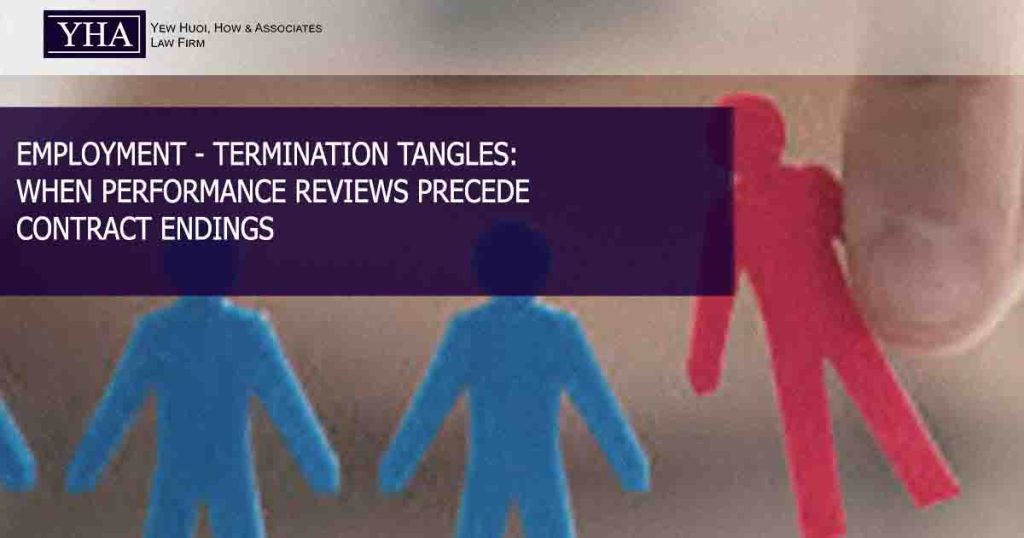ILLUSTRATIVE SCENARIO
X and Y entered into an agreement where X appointed Y to assist with a delivery service in Selangor. The agreement included a review procedure (Clause 8) for X to follow if Y’s performance was deemed unsatisfactory.
A few months later, X alleged multiple breaches of contract by Y and issued a termination notice giving 30 days’ notice under Clause 7. However, X’s letter did not specify any reason for the termination.
Clause 7 – Termination X shall be entitled to terminate this agreement by giving thirty (30) days notice to Y if Y is unable to provide satisfactory services as provided under the agreement.
Clause 8 – Performance Review 8.1 In the event that X shall determine Y’s performance of its obligations under this Agreement as unsatisfactory, Y shall be given thirty (30) days to remedy the unsatisfactory situation.
8.2 If X finds the unsatisfactory situation is not remedied at the end of thirty (30) days given under Clause 8.1, X shall have the option of treating such unsatisfactory performance as an event of default which entitles X to terminate this Agreement pursuant to Clause 7 and accordingly X shall be entitled to all reliefs provided under Clause 7.
KEY ISSUES
The issue is whether X can unilaterally terminate the contract under Clause 7 without specifying reasons in the termination notice?
LEGAL PRINCIPLES
- There are two possible interpretations of Clauses 7 and 8:
- Clause 7 can only be invoked after the procedure in Clause 8 is completed, requiring a notice with specific reasons.
- Clause 8 does not need to be invoked before Clause 7, as Clause 7 does not explicitly require reasons in the termination notice.
- Case law suggests that a termination notice is not always invalid if reasons are not provided. However, if the contract includes a ‘grace period’ for the defaulting party to remedy its performance, the non-defaulting party may be required to communicate reasons for termination.
- Clause 8’s review procedure is not unilateral and aims to protect both parties’ interests, ensuring that unsatisfactory situations are remedied and Y can avoid breach and termination.
- Therefore, interpreting Clause 8 as a mandatory precursor to Clause 7 makes more commercial sense. X should have initiated a review and provided specific reasons before terminating the contract.
APPLICATION TO SCENARIO
X was obligated to initiate a performance review under Clause 8 before terminating the contract and to provide specific reasons for termination. The failure to do so likely makes the termination notice invalid.
REFERENCE CASE
- SPM Membrane Switch Sdn. Bhd. v. Kerajaan Negeri Selangor [2016] 1 MLJ 464

